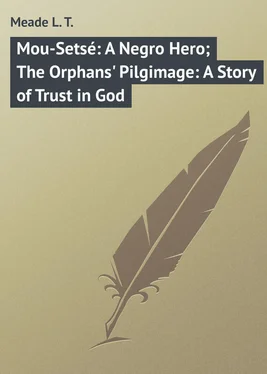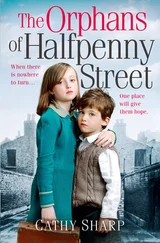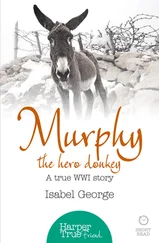L. Meade - Mou-Setsé - A Negro Hero; The Orphans' Pilgimage - A Story of Trust in God
Здесь есть возможность читать онлайн «L. Meade - Mou-Setsé - A Negro Hero; The Orphans' Pilgimage - A Story of Trust in God» — ознакомительный отрывок электронной книги совершенно бесплатно, а после прочтения отрывка купить полную версию. В некоторых случаях можно слушать аудио, скачать через торрент в формате fb2 и присутствует краткое содержание. Издательство: Иностранный паблик, Жанр: foreign_prose, foreign_children, на английском языке. Описание произведения, (предисловие) а так же отзывы посетителей доступны на портале библиотеки ЛибКат.
- Название:Mou-Setsé: A Negro Hero; The Orphans' Pilgimage: A Story of Trust in God
- Автор:
- Издательство:Иностранный паблик
- Жанр:
- Год:неизвестен
- ISBN:нет данных
- Рейтинг книги:5 / 5. Голосов: 1
-
Избранное:Добавить в избранное
- Отзывы:
-
Ваша оценка:
- 100
- 1
- 2
- 3
- 4
- 5
Mou-Setsé: A Negro Hero; The Orphans' Pilgimage: A Story of Trust in God: краткое содержание, описание и аннотация
Предлагаем к чтению аннотацию, описание, краткое содержание или предисловие (зависит от того, что написал сам автор книги «Mou-Setsé: A Negro Hero; The Orphans' Pilgimage: A Story of Trust in God»). Если вы не нашли необходимую информацию о книге — напишите в комментариях, мы постараемся отыскать её.
Mou-Setsé: A Negro Hero; The Orphans' Pilgimage: A Story of Trust in God — читать онлайн ознакомительный отрывок
Ниже представлен текст книги, разбитый по страницам. Система сохранения места последней прочитанной страницы, позволяет с удобством читать онлайн бесплатно книгу «Mou-Setsé: A Negro Hero; The Orphans' Pilgimage: A Story of Trust in God», без необходимости каждый раз заново искать на чём Вы остановились. Поставьте закладку, и сможете в любой момент перейти на страницу, на которой закончили чтение.
Интервал:
Закладка:
L. T. Meade
Mou-Setsé – A Negro Hero The Orphans' Pilgimage – A Story of Trust in God
Story 1 – Chapter I.
Part I – The Town of Eyeo
After all, his story began like any one else’s – he came into the world. In a picturesque town in Africa he opened his eyes; and there is no doubt that his mother was as proud of her little black baby as any English mother would be of her child with fair skin. So far, his story was like any other person’s story, but there, I think, the likeness came to an end. He was an African boy, and knew nothing of what we English people call civilisation. Mou-Setsé first opened his eyes on the world in a clay hut; but this fact by no means denoted that his parents were poor people; on the contrary, his father was one of the chief men of the town, and a member of the king’s council.
Nor was the town a poor one. Perhaps I had better describe it a little, and also describe some of the strange actions of its inhabitants, before I really tell Mou-Setsé’s story.
Though most of the houses were built of clay, the town of Eyeo was considered very beautiful. It lay in the midst of a fertile and lovely country called Yarriba. The town measured fifteen miles round, and a great deal of the ground was laid out in fields and gardens, so that, notwithstanding what we should call its want of civilisation, it looked very unlike many of the smoky, dirty towns at home, and very much pleasanter to live in.
There were walls round the town twenty feet high, built also of clay; and outside the walls there was a deep ditch. This ditch and this high wall were both necessary to protect the town from its enemies. Of course, like all African towns, it had a great many enemies, but it was supposed to be very well protected. The King of Yarriba lived in Eyeo. He had several wives, and his huts covered a whole square mile of the town. He was an idolater, and he had a council of some of the chief men to help him to rule. The king and his people had a very strange religion; each one of them had a god in his own house, and there were also two chief idols, one called Korowah and the other Terbertaru. One of these gods was for the men, and the other for the women. The women were not allowed to look at the men’s god; and when the chief priest offered sacrifice to this god they dared not even glance at him. They might offer to their own god fowls, pigeons, and sometimes bullocks.
These curious idolaters had also a very strange way of burying their dead. All the dead man’s riches, instead of going to his children, were buried with him. If he happened to have been a very rich man, his dead body was carried in procession round the town to the burying-place, which was in the floor of his own room . After he was buried there with all his riches, his family went on living in the house and daily trampled on his grave without the least concern.
In this town, with its strange religion and its many odd customs, was born the little black baby who is to be the hero of this story. He was called Mou-Setsé, and, though he had black skin and rather round and beady eyes, and though certainly his thick, curling hair was also very woolly, yet in his own way he was as fine a little baby as any fair English child; and, as I have said before, his mother was just as proud of him. Mou-Setsé had three brothers and one sister older than himself, so he had plenty of playfellows, and was a great pet, being the youngest of the family.
The pretty little fellow used to sit on his mother’s lap in the doorway of the mud hut, and play with some very precious glass beads which were hung round her neck. As he grew older he mounted on his elder brother’s shoulders, and merrily would he and they laugh as they trotted up and down together. And as he grew still older, and ceased to be a baby, and was able to use his fat, strong legs, he and his brothers and sister went often outside the city walls, and walked through the maize fields beyond and over the plain till they came to the foot of the hills. Then, high up among the rocks, they would wander about in the shade and gather oranges and tamarinds and figs.
No English boys could have been happier than these little Africans on such occasions. Neither Mou-Setsé nor his brothers thought of any dark days that might come, and were, alas! only too near.
Story 1 – Chapter II.
Dark Days in the Town
I have said that sad days were not very far from poor little Mou-Setsé. They came when he was still only a little boy not more than eight years old.
The people of Eyeo had need of their high wall and their strong fortifications, for they were surrounded by enemies.
One day the news reached them that a strong neighbouring tribe, calling themselves Kakundans, were coming to attack them. The King of Eyeo had never done these people any harm, yet they wanted to conquer him, that they might take him and his subjects for slaves, and gain money by selling them to the Portuguese. This was very terrible news indeed; and great terror and great pain did it bring to the inhabitants of Eyeo. The poor mothers began to tremble as they clasped their babies in their arms and reflected on the dreadful thought that soon they and those little children so precious to them might be torn from each other. The fathers, too, brave warriors as they were, looking in the frightened faces of wives and children, felt some of those heart-pangs which make men resolute to conquer or to die. The king called a council, and it was resolved at this council that all needful preparations for war were to begin at once. Accordingly the priests offered sacrifices to Korowah, who was the men’s god, while the women hastened to gain the favour of Terbertaru, who belonged to them.
The warriors busied themselves in polishing their knives and sharpening their daggers and securing the handles of their axes. Even the little children tried to help. The elder boys cleaned and brightened the weapons, while the younger went out to pick fruit, rice, and corn, in case the enemy should shut them up and they should be short of food. Little Mou-Setsé was particularly busy in this way, and his active little feet were scarcely ever still.
These many preparations were not made a moment too soon. The captain of the war, and the chief warrior who was to defend the city gate, were only just appointed when the terrible Kakundans were seen approaching towards Eyeo. With their arms glittering in the sunbeams, on they came, nearer and nearer, trampling down the flourishing rice harvest, until the sound of their feet and the clanking of their weapons were heard just outside the city walls.
It was the intention of this cruel enemy to encamp round about the city, and to subdue it by famine. Oh, what trouble there was in Eyeo that night! What weeping and sorrow in many a hut! For though the children were ignorant, and perhaps the wives had some hope, well did the warriors know that they had little chance of escape. They were determined, however, to do what they could, and to defend their wives and children at any cost.
From the hour the Kakundans encamped round the city all was in confusion there. There was nothing thought of but the war. Now and then bands of men used to go out and fight with the enemy, but the Eyeo men had very few successes and many failures. As the days went by they grew weaker and weaker. Alas! famine was making them weak. Famine was beginning to tell on old and young alike in the unhappy city. Little Mou-Setsé’s fat legs grew thin, and his round cheeks hollow, while his bright, black eyes stared more and more out of his face every day. He was only one of many. He and his brothers and sister felt hunger, and even cried for bread, but they had not the terrible fear that pressed so heavily on the hearts of the grown people. That fear was to be realised all to soon.
Читать дальшеИнтервал:
Закладка:
Похожие книги на «Mou-Setsé: A Negro Hero; The Orphans' Pilgimage: A Story of Trust in God»
Представляем Вашему вниманию похожие книги на «Mou-Setsé: A Negro Hero; The Orphans' Pilgimage: A Story of Trust in God» списком для выбора. Мы отобрали схожую по названию и смыслу литературу в надежде предоставить читателям больше вариантов отыскать новые, интересные, ещё непрочитанные произведения.
Обсуждение, отзывы о книге «Mou-Setsé: A Negro Hero; The Orphans' Pilgimage: A Story of Trust in God» и просто собственные мнения читателей. Оставьте ваши комментарии, напишите, что Вы думаете о произведении, его смысле или главных героях. Укажите что конкретно понравилось, а что нет, и почему Вы так считаете.












